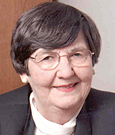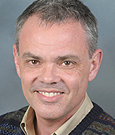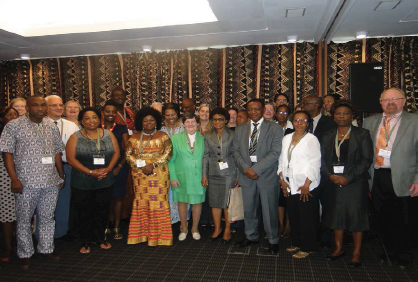More than 1,000 scientists from 66 countries, including 32 of the 52 African countries, attended the African Organization for Research and Training in Cancer (AORTIC) 9th International Conference on Cancer in Africa, held this past November in Durban, South Africa. The theme of the 2013 meeting was Cancer in Africa: Bridging Science and Humanity. The program featured concurrent plenary and workshop sessions on a variety of topics, including from epidemiologic analyses to pathogenic mechanisms, biomolecular pathways, clinical data, and innovative therapeutic strategies. In addition to focusing on the cancer care of patients in Africa, the meeting also addressed the need for increasing the oncology workforce in the African continent.
Currently, the most commonly diagnosed cancers in African men include Kaposi’s sarcoma, constituting 12.9% of all cancer in males; liver cancer, 14.8%; prostate cancer, 9.5%; bladder cancer, 6.1%; and non-Hodgkin lymphoma, 5.7%. In African women, the most common cancers include cervical cancer, constituting 23.3% of all cancer in females; breast cancer, 19.2%; Kaposi’s sarcoma, 5.1%; liver cancer, 5%; and non-Hodgkin lymphoma, 3.7%.
Treating the Whole Patient
Held in conjunction with the AORTIC conference was the International Psycho-Oncology Society (IPOS)/AORTIC Academy, which was co-chaired by Jimmie Holland, MD, founder of IPOS, and Attending Psychiatrist and Wayne E. Chapman Chair in Psycho-Oncology at Memorial Sloan-Kettering Cancer Center, New York; Chioma Asuzu, PhD, Senior Lecturer in Psycho-Oncology at the University of Ibadan, Lagos, Nigeria; and Mark Lazenby, PhD, Director of the American Psychosocial Oncology Society and Assistant Professor of Nursing at Yale School of Nursing, West Haven, Connecticut. The theme of the IPOS/AORTIC Academy meeting was “Treating the Whole Patient: Moving Psycho-
Oncology Forward.”
Meeting Overview
Approximately 50 members of IPOS and eight travel scholars from five African countries were in attendance (see page 39 for more on “IPOS/AORTIC Travel Scholars”). Joe Harford, PhD, Director of the Office of International Affairs at the National Cancer Institute (NCI), led off the first session with a review of the scientific literature on the major causes of delay in patients’ receiving a timely cancer diagnosis. They included patients’ late presentation to health-care providers and system delays. “These delays are the major cause preventing curative treatment in Africa,” Dr. Holland said.
Dr. Asuzu followed Dr. Harford with a presentation of the results of her NCI-funded study on the role of traditional healers in the care of patients with cancer and how it contributes to the delay in patients receiving evidence-based cancer care and, consequently, curative therapy.
Improving Care Through Education and Better Communication
The second session focused on education and communication in the improvement of cancer care and included presentations by Vincent Odigie, MD, Professor of Surgery at Ahmadu Bello University Teaching Hospital in Zaria, Nigeria; Beatrice Wiafe-Affai, MD, PhD, Chief Executive Officer at Peace and Love Hospitals in Ghana; and Margaret Fitch, PhD, Head, Oncology Nursing at the Odette Cancer Center of Sunnybrook and Women’s Health Science Center in Toronto, Canada; among others.
Dr. Odigie spoke about the results from his study on the use of cellphones to improve doctor-patient communication. According to Dr. Odigie’s study, in which breast cancer surgeons gave their cell phone numbers to patients so they could call with questions or symptoms, over 86% of participants rated phone use very useful in obtaining information or rescheduling appointments.
Dr. Wiage-Addai, also a breast cancer surgeon, described her work using breast cancer survivors as lay educators and support group facilitators to provide psychological support for patients with breast cancer. Dr. Fitch spoke about the use of distance modalities and the role of interpersonal education in teaching and learning patient- and family-centered care.
Managing Cancer Globally
The final session, titled “Routes to Change Through Collaboration,” was presented by Folakemi Odedina, PhD, Professor, Pharmaceutical Outcomes and Policy, at the University of Florida, and Shubhra Ghosh, MD, Project Director of Global Academic Programs at MD Anderson Cancer Center.
Dr. Odedina discussed the role of patient advocates in enhancing patient care. Dr. Ghosh explained MD Anderson’s role in developing collaborative programs in Zambia to provide more training, service delivery, and research to increase the number of skilled providers in the management of comprehensive cancer care and improve and increase access to care to more patients.
Watch future issues of The ASCO Post for interviews with faculty from the IPOS/AORTIC Meeting. ■





